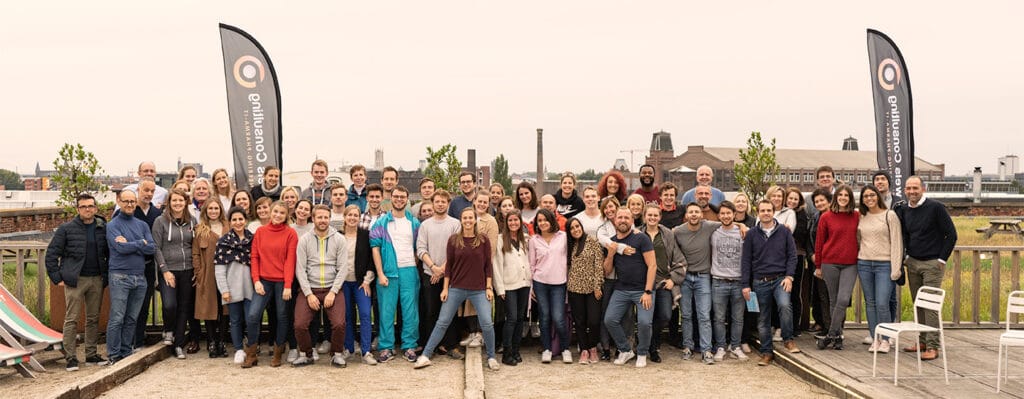Insights
What is Lean? What is TPS?
On Thursday the back-office team of Pauwels Consulting was introduced to the basics of the Lean methodology in an inspiring workshop. In his workshop, the most important principles of the Toyota Production System (TPS), probably the most renowned systematic implementation of Lean principles were discussed.
WHAT IS LEAN, WHAT IS TPS AND WHY SHOULD I CARE?
Lean is a methodology for improving the operational excellence of organizations by:
- improving the efficiency
- preventing the waste/losses
- increasing the competitiveness
- stimulating innovation
- stimulating the involvement and support of all stakeholders
The Toyota Production System (TPS) is probably the most renowned systematic implementation of Lean principles. Since its inception in the seventies, TPS has been adopted and adapted by many companies around the world.
WANT TO BE EFFICIENT? CUT THESE LOSSES!
TPS focuses on reducing waste and losses that originate from:
Overproduction
Sometimes companies produce too many goods, or they produce their goods too soon. As a result, these goods require extra storage space and extra resources to store, find and retrieve them. This takes extra money and time which can have huge impact on a company’s bottom line.
Inefficient inventories
Stocks that are too large require extra storage space and extra resources to store, find and retrieve goods. Stocks that are too small hinder the production of goods. It is very important to have an inventory that matches the actual demand as precise as possible.
Needless transport of goods and people
Companies often move materials from one production plant to another without good reason. Extra transport requires extra time and resources and it increases the risk of incidents with the goods and the people involved.
Waiting times
Needless to say, if operators have to wait for the arrival of raw materials to start up their production lines, it can have a large impact on the production capacity and the bottom line of a company and the morale of its employees.
Rework
Similarly, if a company produces goods that are not in line with their requirements, it requires extra work, time and resources to make the goods compliant with the original requirements.
Overprocessing
Sometimes companies do more than they are asked for. Nice as it may seem, it can have serious impact on a company’s production and bottom line.
Motion
People often perform too many movements and/or movements that are ergonomically not correct. This can result in long-term injuries.
Not involving the people ‘on the floor’
If you don’t welcome the feedback and opinion of all people involved, you will never find the required support to successfully implement Lean principles in your company.
At the end of the presentation, Eddy gave us 5 important lessons to remember.
5 LEAN LESSONS TO REMEMBER
Every business is a people’s business
It is important to involve everyone from the top management to the suppliers and the people on the floor. If you don’t, you will lack support. Since a company is only as strong as its weakest link, you’d better secure involvement and support from all parties involved.
Standardize your processes
The more you standardize your processes, the smaller the chance of flaws and incidents. Try to eliminate variation in your processes as much as possible.
Quality is the best policy
Introduce poka yoke (error proofing, solutions that prevent mistakes and incidents from happening) instead of numerous checks. Imperfections should be prevented or noticed fast so that remedies can be put in place as soon as possible.
Produce and deliver your goods ‘just in time’
Try to fight the urge to produce too much or too soon. As discussed above, (temporary) overproduction requires more storage space, resources and time. This can have a negative impact on your production capacity and your company’s bottom line.
There is always room for improvement
Always try to further streamline your business. Your employees, suppliers, clients and wallet will be very grateful.





